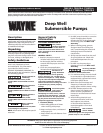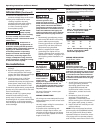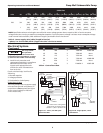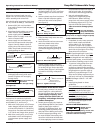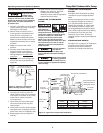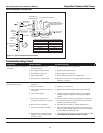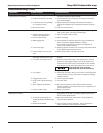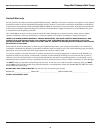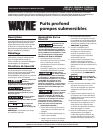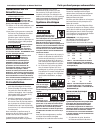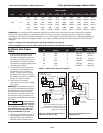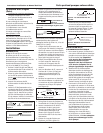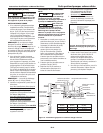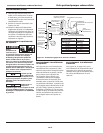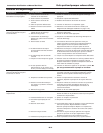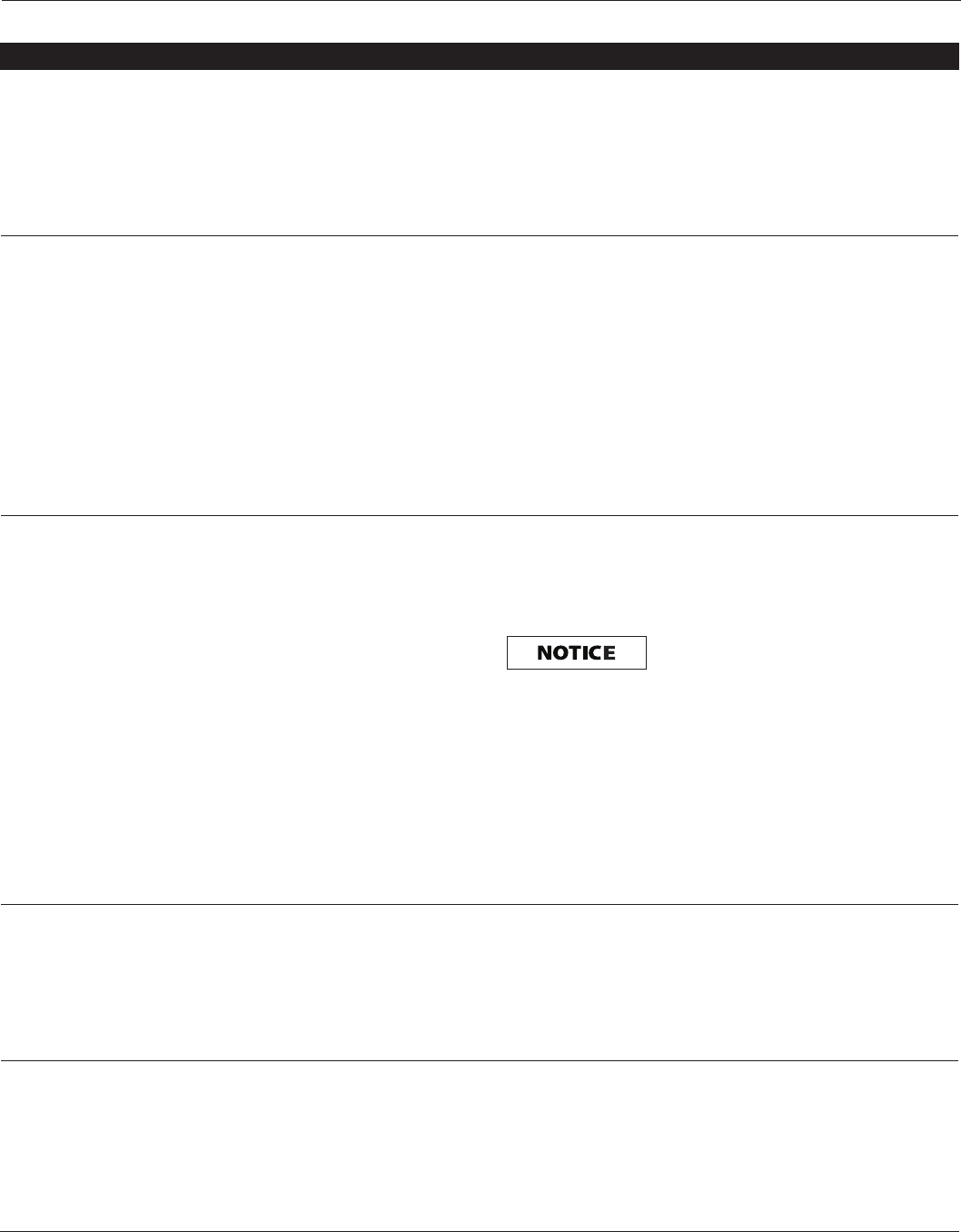
7
www.waynepumps.com
Symptom(s) Possible Cause(s) Corrective Action(s)
Fuses blow or overload protector
trips while motor is running
1. Low or high voltage 1. If voltage variation is greater than 10% of nameplate rating,
call power company to adjust voltage.
2. Ambient temperature too high 2. Check temperature of control box. If necessary, move pump
out of direct sunlight.
3. Control box uses wrong voltage
or horsepower rating
3. Replace control box if voltage and horsepower ratings on
control box nameplate do not match those shown inside box
cover.
4. Wire size too small 4. Install wire of correct size.
Pump starts too frequently 1. Leaks in system 1. Check tank connections with soapy water. Check plumbing for
leaks. Ensure system is airtight and watertight.
2. Defective pressure switch or
switch out of adjustment
2. Adjust or replace pressure switch.
3. Leak in check valve(s) 3. Replace if needed.
4. Waterlogged tank 4. Pre-charged tanks: Adjust air pressure to 2 psi (13.8 kPa) less
than cut-in pressure. Replace bladder if needed.
Air-over-water tanks: Repair or replace tanks. Replace air
volume control (AVC) if needed.
5. Leak in drop pipe 5. Raise drop pipe by increments of one length until water stands
in pipe. Replace pipe above that point.
6. Pressure switch is too far from
tank
6. Position switch within 1 foot (0.3 m) of tank.
Little or no water pumped 1. Check valve stuck or installed
backwards (standard tank only)
1. If stuck, free valve. If installed backwards, reverse valve
position.
2. Low water level (water source) 2. Determine lowest water level in well while pump is running.
Compare to pump depth setting. Lower pump further into
well, but at least 5 feet (1.5 m) from bottom of well. Throttle
pump discharge until discharge equals recovery rate of well.
Running pump while airlocked
CAN cause loss of prime and serious
damage to pump.
3. Low voltage 3. Install larger wire from meter to control box. Install larger wire
from control box to pump. Have power company raise supply
voltage if needed.
4. Clogged intake screen 4. Clean or replace if needed.
5. Check valve at pump discharge
stuck
5. Free check valve.
6. Worn impellers and diffusers 6. Make sure that system is clear of debris and that pump is
running normally in clear water. If there are no obstructions in
system, replace pump.
7. Cracks or leaks in pipe 7. Replace as necessary
Air, milky, or tea colored water
discharge from faucets
1. Gas in well water 1. Remove air release ports and plug tees. Make sure that
plugged tees do not leak. If necessary, separate gas from air
before it enters pressure tank.
2. Air volume control (AVC) not
working properly (standard tanks
only)
2. Make sure ports and ball check valves are clear. Replace air
volume control if needed.
3. Recent Shocking Well 3. Pump out well to remove chemicals. Test for chemicals in
water, to determine when flushing is complete.
Troubleshooting Chart
Operating Instructions and Parts Manual Deep Well Submersible ump



